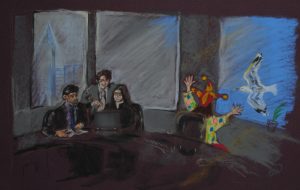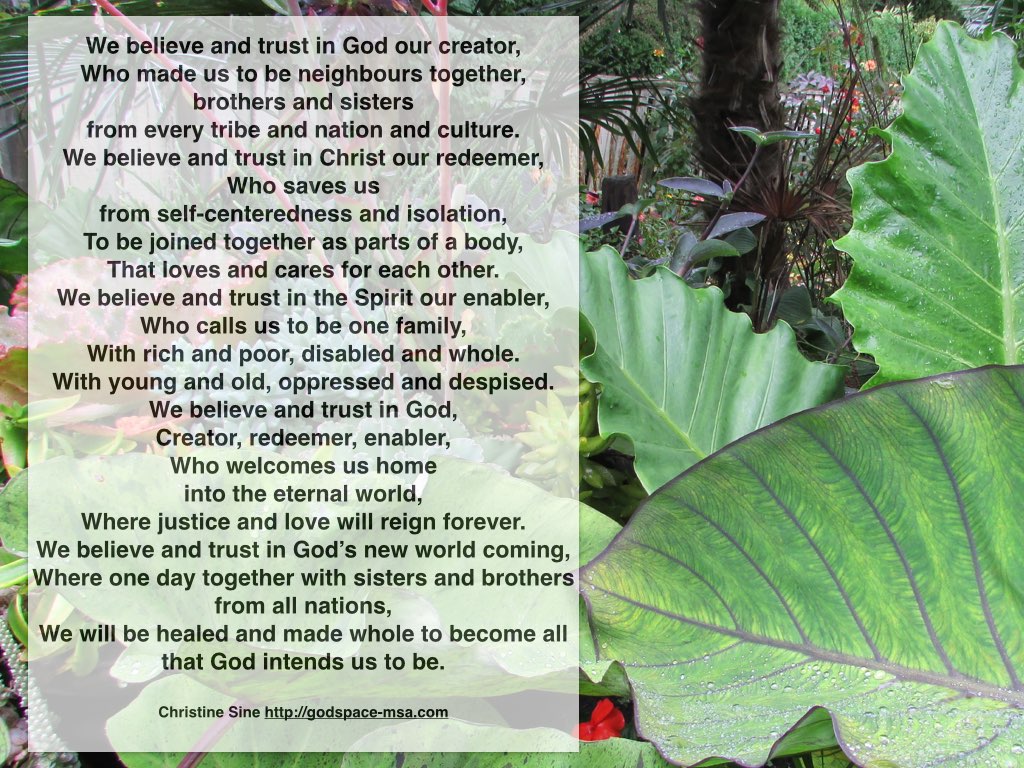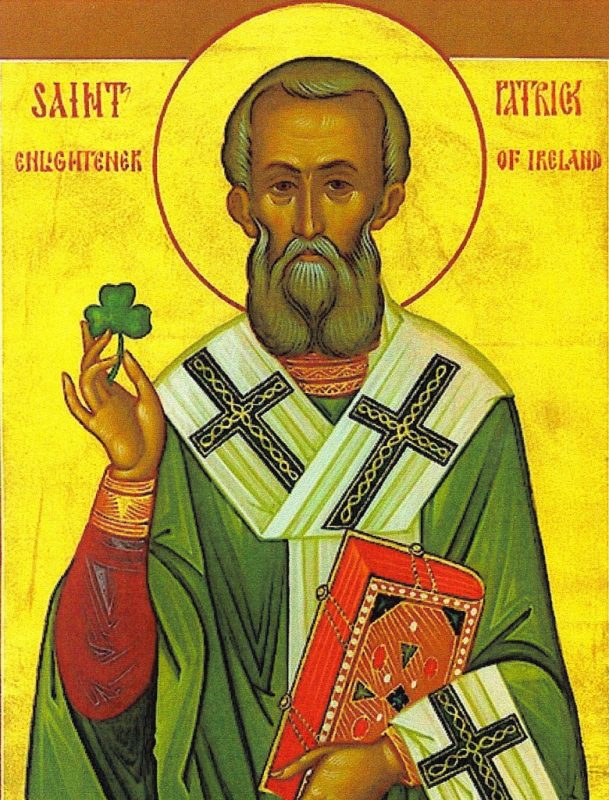Please allow me to ask you a question. What really piqued your interest in this blog, the title or the picture? I know what my answer would be. As they say, a picture is worth a thousand words.
Here is my story behind the picture.
When I was a young child my parents would give me an allowance. As I recall it was not a significant amount, maybe ten cents per week when it started. I think it eventually worked its way up to twenty-five cents per week. There is always the inflation factor.
Every week I would commit one half of my ten cent allowance to the purchase of one precious, delicious, melt in my mouth Reese’s peanut butter cup. I loved and still do love Reese’s peanut butter cups. And back then they were only five cents each.
Since this is a Lenten blog you can probably sense where this is heading. I was told that I should give up something for Lent that would be difficult for me to give up. For me, what could possibly be more difficult than giving up for five plus weeks my weekly Reese’s peanut butter cup? The answer is,“Nothing.” I also was not informed about the “Sunday Exemption”.
Thinking of nothing more difficult to give up at that time, I promised God that I would make this supreme sacrifice. It was difficult for me. And to make matters worse since I was a regular customer, when I went to pay for a different candy bar the woman at the counter said, “What no Reese’s peanut butter cup today?” I told her that I had given it up for Lent. Without even realizing it I was being a witness to my faith and practice. But I digress.
Giving up a piece of candy once per week? Looking back I wonder if that was any big sacrifice. Seriously? A five cent candy bar? It was a sacrifice without a blemish as far as I was concerned. But was God Impressed? Did God need that offering. Did God realize how difficult it was for me? Did God care? I wondered.
This ended like many of my Lenten resolutions over the years. Sometimes I made it and sometimes I did not. But a Reese’s peanut butter cup as a sacrifice to God? Seriously? How foolish it was for me to think that a sovereign, Holy, omnipotent God would be impressed by my little sacrifice. Foolish! Or was it?
I suspect that the foolishness of what one does for God is relative to one’s place in their spiritual journey. I changed from giving up things during Lent to doing good deeds or committing to spiritual practices. Being an adult did not guarantee success in keeping my promises to God over the years. I wonder if even making a commitment each Lent was just another attempt to be faithful that would end in failure. Was it foolish to even try?
Obviously I am no expert or authority in the area of sacrifices and offerings to God. I am no expert on Lenten practices. I frequently feel inadequate and foolish trying to live by faith. I am always learning, falling and getting up again.
Currently, I am not technically giving up anything for Lent. I am not attempting to keep up a new or existing practice. I am simply trying to be. Yes, that is all. I am simply just trying to be. Be.
Be present in the moment. Be present and aware of the Presence always and everywhere. Be present to the Presence in all of creation surrounding me. How am I doing you might ask? As I said, I am always learning, falling and getting up again.
Foolish? Maybe, but Easter is right around the corner.
By any chance have you tried those Reese’s peanut butter Easter eggs?
By Lynne Baab —
On March 20, at 9:15 a.m. Pacific Time, the earth will be completely vertical in its orbit. You probably know that for most of the year, the earth is tipped, with the north pole either slanted toward or away from the sun. Twice a year, for one exact moment around March 20 and September 22 (give or take a day), the earth is not tipped.
Another way of saying this is that on those equinox days, the sun is directly over the equator. Sunrise and sunset are due east and due west at every latitude.
At a UNESCO conference in 1969, when care for the environment was just beginning to be promoted, John McConnell proposed creating an Earth Day on the March equinox. Only a month after McConnell’s proposal, a United States senator proposed April 22 for Earth Day, and that day has been celebrated in the United States since 1970. But the Equinox Earth Day continues to be celebrated in some countries around the world. It can never hurt to celebrate something important twice!
John McConnell (1915-2012) was a Christian, whose passion for caring for the earth came from his reading of the Bible and his belief that God cares for the well-being of all people. In 1939, he was working in a plastics research lab in Los Angeles, and he became concerned about the impact on the environment of the manufacture of plastics. Throughout his long life, McConnell was an activist for environmental stewardship, world peace, and care for the poor.
One of the scripture verses that motivated McConnell was Psalm 115:16. He probably would have read it in the King James version: “The heaven, even the heavens, are the Lord’s; but the earth hath He given to the children of men.”
Here are two modern translations:
- “The heavens are the Lord’s heavens, but the earth he has given to human beings” (NRSV).
- “The heaven of heavens is for God, but he put us in charge of the earth” (The Message).
I so often get discouraged about caring for creation. The discouragement comes from several sources. How can my little efforts really make any difference when corporations and individuals elsewhere are polluting in much greater amounts? How can I know exactly what matters to do? Should I go on that vacation that involves a long plane flight, which burns so much carbon, even if part of the purpose is to connect with a family member? How important is it to eat organic all the time, even when the cost is much higher?
I love to think about people like John McConnell, who never stopped doing what he believed to be right, even though care for the environment was in its infancy for much of his life. I like that McConnell had a favorite verse he clung to, which helped him stay motivated.
McConnell was deeply moved by the beautiful photo of the earth taken by the crew of Apollo 17 on December 7, 1972. McConnell designed the Earth Day flag, which has an image of the earth from space on it. McConnell helps me remember that strong and vivid visual images can play a role in keeping us motivated.
My key verse for creation care is Genesis 2:15: “The Lord God took the man and put him in the Garden of Eden to work it and take care of it” (NIV).
On this Equinox Earth Day, what is your key verse that helps you stay motivated to take care of the earth? Who are the people who help you stay inspired? What image or images are helpful to you?
by Christine Sine
Last week we posted this very powerful Immigrant’s creed and on Friday I reposted a link to these beautiful creeds by St Patrick. It reminded me of a series of posts I did several years ago on writing my own creed the one featured above. Establishing a personal creed as a statement of faith seems like an important thing to do during the season of Lent and I challenge you to take time this week to do that.
Create Your Own Creed
Make a list of your core beliefs and the spiritual practices that nurture those beliefs on a regular basis. Look over the list and prayerfully consider: Is your faith strong and vibrant or weak and frail? What provides the iron and steel you need to grow your faith into the future?
Read through the Nicene Creed and Apostles’ Creed or listen to this version of the Apostles’ creed. In what ways do these statements reflect your own beliefs? What would you like to add or subtract? Use them as a foundation for writing your own creed. You may want to memorize it, but more importantly, you need to read through this creed regularly so that you are confident in what you believe.
Use Your Creed Faithfully
1. Read your statement of faith regularly. Over the weekendI have been reading my statement of faith each morning. Sometimes I read it out loud. Other times I read it quietly to myself allowing its truths to sink deep into my spirit refreshing and renewing my soul. It resonates deep within me strengthening my faith in what I believe and why I follow Christ.
2. Use your creed as a focus for meditation. This is an exercise that could take weeks or even months (maybe during the season of Easter.) Use each phrase of your creedal statement as a focusing point for your daily meditations. Progress slowly through the entire statement over a period of days or weeks allowing the spirit to remind you of who God is and what the implications for your life are.
This morning I started this process by meditating on “we believe and trust in God our Creator.” My thoughts revolved around the daily distractions and corrupting influences that so easily draw me away from trusting in God alone. Concern about the future is a big one for me and I think for many others in our world today. I know how easily these concerns can lead to the worship of other gods – economic security for today, financial provision for tomorrow, even fear itself become gods that consume our attention each day.
These thoughts drew me into the scriptures to verses that encourage me to trust in God for my provision. My favourite is Psalm 37: 3-7. Trust in the Lord and do good… It is a great reminder of our need always to trust in the one true God and not be consumed by other gods. It is also a reminder that our trust should lead to action. Often one of the barriers to doing good is our concern about how we will provide for ourselves.
That led me to ask: Why do I think that God is trustworthy? That of course opened up another whole area of meditation and reflection that will probably carry me through the rest of the week.
3. Keep a journal of your reflections about God and your faith. Writing down our meditations and reflections is a wonderful way to reinforce our faith and strengthen our beliefs. I suggest you write your entire creedal statement out at the beginning of this section in your journal. Then write the phrase you want to focus on at the top of a fresh page. Write down your reflections. Add scriptures as they come to mind.
4. Put your thoughts into action. What is one thing you could do today that will reinforce your beliefs? How can I reinforce my belief in the trustworthiness of the One true God? How do I shut out the distracting voices that lead me to worship other gods? My decision for today is to pause regularly throughout the day to recentre my spirit on God, something that is easier said than done. Tomorrow I will share what happened.
5. Repeat the process daily or more frequently if necessary. This is not a one time exercise. Reminding ourselves about our core beliefs and transforming these into action is something that should form the backbone of our spiritual practices.
by Christine Sine
Today is St Patrick’s Day, best known to many of us as a time to eat corned beef and cabbage and drink Guiness. However St Patrick deserves to be remembered for far more than that. He not only brought Ireland into the Christian faith, he also wrote some wonderful prayers the continue to enrich our faith today. The best known of these is St Patrick’s Breastplate which I encourage you to spend time reflecting on today.
I love this telling of the story of Patrick and the writing os St Patrick’s Breastplate
If you are looking for a version to use for quiet meditation I highly recommend this one called The Deer’s Cry
Or if you are looking for a more traditional hymn – I love this one
And I couldn’t resist putting my own stamp on it with this prayer adapted from St Patrick’s Breastplate that I wrote a couple of yers ago
We bind unto ourselves today
the strong name of the trinity,
By invocation of the same,
the Three in One and One in three.
We bind this day to us forever, by power of faith, Christ’s Incarnation;
His baptism in the Jordan River; his death on cross for my salvation;
His bursting from the spiced tomb; His riding up the heavenly way;
his coming at the day of doom; We bind unto ourselves today.
We cast off the works of darkness today,
And put on the armour of light,
Light before us and behind,
Light within and light without,
Light to guide and to lead us,
Let us clothe ourselves with Christ.
Christ behind us, Christ before us,
Christ beside us, Christ to win us,
Christ to comfort and restore me,
Christ beneath us, Christ above us,
Christ in quiet, Christ in danger,
Christ in hearts of all that love us,
Christ in mouth of friend & stranger
Let us wrap ourselves around with the belt of truth,
And strap on the breastplate of righteousness,
Let us clad our feet with the gospel of peace,
place the helmet of salvation on our heads.
And take up the shield of faith.
Let us clothe ourselves with Christ.
We bind unto ourselves today, the power of God to hold and lead,
God’s eye to watch, God’s might to stay, God’s ear to harken to our need,
The wisdom of our God to teach, God’s hand to guide, and shield to ward,
The Word of God to give us speech, God’s heavenly host to be our guard.
In the love of God who shelters us,
In the light of Christ who walks beside us,
In the power of the Spirit who dwells within us,
We place ourselves today.
Let us clothe ourselves with Christ.
We bind unto ourselves today the strong name of the Trinity,
By invocation of the same, the Three in One, the One in Three.
Of whom all nature hath creation, Eternal God, Spirit, Word;
Praise to the God of our salvation, Salvation is of Christ the Lord.
by Rob Lewin
This Lenten season our community has been discussing Walter Brueggemann’s great little book Sabbath as Resistance. It’s been a breath of fresh air and wonderful read. One of the critical issues in the book is learning that the God of Israel, of the Ten Commandments, YHWH, or Yahweh, as we say it, builds identity in a narrative. That defining narrative is the Exodus, the extraction of the nation of Hebrew slaves out from Egypt, crossing the Red sea on dry ground, and delivered safe to Mt. Sinai to receive the Ten Commandments. This community is given the commandments with number 4, on Sabbath, as the “bridge” commandment between the first three that explain how to relate to God and the last six that explain how to relate to your neighbor.
In this commandment God builds a community based on “rest.” In Genesis 2 we learn that God rested on the seventh day. God is a God of rest. This community is also to rest on the seventh day as well, just like God. They are to be a people of rest, in a Covenant of rest, living a life of rhythm and rest. God isn’t a workaholic and neither are they.
To us this seems like “old hat.” Yesterday’s news. But the Hebrew slaves had been in bondage for 400 years. There was never, ever any rest. Not one day, or hour or minute. Ever. When Moses showed up to bring his message to Pharaoh, they are words that Pharaoh simply can’t understand. They are the most hope-filled, joyous words ever uttered. And even to us 21st century people yearning for God and hope ourselves, the words ring clear and true. “Let MY People GO!” God says “These slaves are the ones I seek. I want them for myself. I am the God of slaves.” Anyone in bondage needs a God who will command, “Let MY People GO.” This isn’t just good news. This is the best news. This God wants to not only free the slaves, and make them God’s own people, but for the first time, God wants, even commands, them to rest. To breathe. To sing. They get to be really free.
This “Gospel” of freedom speaks to our current enslavement today. What are you enslaved to? The Bachelor? Instagram? Clothes? Complaining about the Government? Work? Sex? Bitterness? Booze? Money? Weed? Opioids? Sports? Hate? This is a God who says “let them GO!” God is on your side for freedom. Freedom and rest are at the core of the Covenant with Israel.
Each week our community has discussed the book chapter by chapter. As we continue to look at the text, I feel myself saying, “Have I ever really had a true Sabbath; in a regular week, not a retreat, but as a normal weekly rhythm?” And the real unvarnished answer in a simple “no.” Could that be the reason that my enslavement seems so strong? What would 24 straight hours of honest rest, and focus on the “God of freedom” really be like? Heck, what would just 2 or 4 hours be like? Right? It seems to me that it’s time to take this God at his word, and learn to rest on purpose and with meaning. I also need to remember that if the Spirit of God lives in me, then the heart of Sabbath lives in me as well. I see engaging in this rest as taking hold of the rest and freedom birthright I’m being offered. Is it possible that this day of focused rest is the key to escaping my enslavement? Can I fit into the Exodus community too? Can you?
Can we possibly “not try?” Really? What do we have to lose, except our bondage?
So, how do we start? What, Dr Leo Marvin, are our “Baby Steps?” (See “What about BOB”)
- The first baby step then is an awareness, an understanding. Do you believe that consistent time awake and aware of God in a peaceful way is worth committing too?
- If you do, then step two is to stop now, put down your cup, and pray. Ask God for how you can honor this rest that is already built into you.
- Step three is to commit to four weeks of some kind of Sabbath. If you think 2 hours one day per week is all you’ll be able to handle, then do that. If you think that you can handle more, do that.
Make sure it’s “do-able” by you. Remember Jesus’ injunction that the Sabbath is for you. You’ve been set free, and you GET to rest. And begin. Peacefully.
Peace to you as you begin your journey. You’re walking into loving arms.
Rob Lewin is the author of Community of Kindness, A Refreshing New Approach to Planting and Growing Churches.
By John Birch —

A story by Keren Dibbens-Wyatt —
Saint Francis lasted longer than I did at the Conference for Christian Leaders “Using Your Influence”. He sat through several speakers and nodded politely here and there whilst fiddling with the knots on his long string belt that symbolised his sacred vows. Mostly he kept his eyes shut and just peeked out at the thousands of people seated round him occasionally and then wisely shut them again. Sometimes it is just better to gaze at the inside of your own eyelids. The lights were bright and hot, and the air felt strange in the huge auditorium, full of a pumped up testosteronic excitement that had pulses and egos racing.
After a while though, he did what I did and wandered out to the corridors where the drinks and vending machines were, and ran the water fountain, cupping his bleeding hands in the stream with clear delight, and lifting the coolness to his tired face. He drank long of the sweetness, and sploshed his face. I had done the same, and then tried to steel myself to go back in, but I just couldn’t do it.
“Hello,” I said and he smiled, a little warily, in case I was one of them. I even think he looked round for the exits, just in case, and I can’t say I blame him. I didn’t know what to say, really. But words have a habit of forming anyway, and there was certainly a torrent of loud ones being amplified behind us in the main room. “Isn’t it awful?” was what I came up with. He smiled wider then. Did he even speak English? My Italian was not up to much. Poco barely covered it.
For the purposes of my dream or my story, whatever you want to call it, he did understand me. “I don’t know what they are talking about,” he shrugged. “I don’t know what is this productivity, in a church, in God’s house? What is that?”
“I don’t know,” I said. I suspected it meant bums on seats, but I wasn’t going to sully this conversation with that thought. “More followers?” I hazarded.
“For them or for Christ?” he asked, bluntly. I loved him even more right then. I laughed.
“Who is counting?”
“Not God!” We both smiled.
“I will leave now. I don’t know why they asked me,” he said, looking small and fragile in the clinical surroundings and artificial light.
“Are you not a speaker?” He shook his head.
“What could I say to this,” he shrugged his shoulders and flung his arms out in a typically latinate gesture, encompassing the whole conference, “to whatever this is? This is no place for God’s fools. We do not belong. We are bleeding and small and unworthy.”
“I know. They asked you for kudos, to make it look like you approved.” That smile again. I knew he could not know what I meant, but he understood the longing in my heart.
“We will leave now. Will you join us?”
“Most gladly.” I did not care where he was going. But, “We?” I asked. He frowned a little, and lowered his voice, though no-one was listening.
 “Have you seen a small, odd friar with a far too joyful face anywhere?” I wanted to say, “You mean apart from the one standing in front of me now?” and then realised I could, and did. He laughed. “Si, si, another one!” Behind him I saw a pair of burly security guards carrying out another raggedy Franciscan friar, his brown tunic hanging loosely on his gangly body, his eyes rather wild but full of joy.
“Have you seen a small, odd friar with a far too joyful face anywhere?” I wanted to say, “You mean apart from the one standing in front of me now?” and then realised I could, and did. He laughed. “Si, si, another one!” Behind him I saw a pair of burly security guards carrying out another raggedy Franciscan friar, his brown tunic hanging loosely on his gangly body, his eyes rather wild but full of joy.
“This one belong to you?” the guards asked Francis roughly. The saint nodded, unruffled, but concerned for his brother. “We found him stealing things from the conference booths. He says he was going to give them to the poor. Didn’t even try to hide them. Is he dangerous?”
“Dangerous? Juniper?” Francis sighed, “Only to himself.”
“Will you vouch for him? I don’t think arresting a monk would look that great with the conference on and all. Especially if he’s with you.”
“We vouch for him,” I said, “And we’re leaving now in any case.” Francis nodded, and Juniper followed suit, nodding a little too much and too hard, as expected. They let go of him, seemed glad to deliver the problem to someone else, and he slumped down onto the shiny tiled floor. “We ought to make him empty his pockets first,” said one to the other.
“Man, he aint got no pockets, look at him!” said the other, and they sauntered back inside the foyer.
“Oh Juniper, what have I taught you about stealing?” said the great man, puddles of blood now pooling below him from his stigmata. Juniper looked shame faced for just one moment before shedding it in a heartbeat and an exclamation.
“But, my brother, they have so much! Always we have the poor with us. These people will not miss a thing.”
“I know, I know,” and with that we all ambled out of the building for good, the saint, the idiot and the failure, three holy fools arm in arm, knowing that there was no place like home, and that it was definitely not to be found in a place like this.
When we were safely three blocks away and standing waiting for the train, Brother Juniper giggled to himself and produced from within his stinking tunic a stack of books. Francis rolled his eyes as his fellow friar gave the books to a homeless veteran sitting on the platform.
“What the hell am I supposed to do with these?” she wisely asked. I explained she might sell them to those conference attendees passing through, and gave her a few dollars to use as change, or for whatever she needed. She shrugged, and set up a book stall on the ground. “These stolen?” she asked with a scowl.
“Taken,” said Juniper, “from the Lord’s followers. So they won’t mind.” I rolled my eyes, something Francis had long ceased bothering to do.
“They might mind,” I said, just to warn her.
“Good,” she said warmly. “If I get arrested I will be in the warm and dry. Looks like rain.” Francis, long-practiced, reached out an arm to stop Juniper lifting off his tunic to give to the woman.
“She has clothing, Juniper, and the sight of your scrawny hide is unlikely to give our sister any comfort.” Juniper acquiesced to his teacher, and the train came, and we got on, not knowing where we were headed, not having any fare, with no plan for how to grow the potential of our churches, just glad to be away from the cold harsh lights and the business mantras and the stench of success.
As an Amazon Associate, I receive a small amount for purchases made through appropriate links.
Thank you for supporting Godspace in this way.
When referencing or quoting Godspace Light, please be sure to include the Author (Christine Sine unless otherwise noted), the Title of the article or resource, the Source link where appropriate, and ©Godspacelight.com. Thank you!







